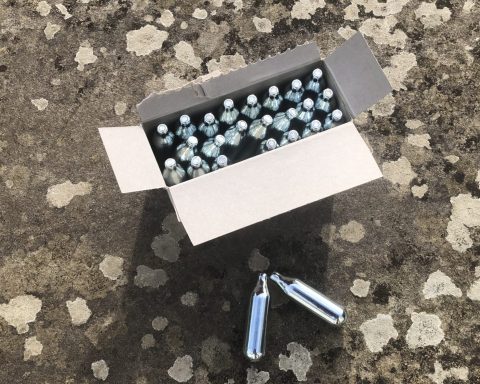
 Shona Lucitt (right) is currently studying for a Masters in Public Health at Imperial College London. She previously worked at the Alzheimer’s Society supporting a pilot project for people living with YOD. More recently she has been working for Public Health England in cancer analysis.
Shona Lucitt (right) is currently studying for a Masters in Public Health at Imperial College London. She previously worked at the Alzheimer’s Society supporting a pilot project for people living with YOD. More recently she has been working for Public Health England in cancer analysis.
Melanie Davis-Hall (left) is a GP trainee on the Imperial VTS scheme and editorial fellow at the BJGP.
A typical story
“I knew something was wrong, I just didn‘t know what. Maybe it’s just me, I thought, maybe I’m a bit stressed.”
“I knew something was wrong, I just didn‘t know what. Maybe it’s just me, I thought, maybe I’m a bit stressed. I did have a lot on at work. I’d always been really on the ball and ahead of time but things were taking me twice as long, particularly when it came to writing anything. I simply couldn’t find the words, and those I could remember, I couldn’t spell anymore. I even forgot how to use the photocopier I’d used for years, it was so embarrassing. I began to gradually lose my confidence.
Life went on like this for over 2 years, with things becoming more and more difficult. It put particular strain on my relationships as I avoided going out anywhere, particularly somewhere new and seeing my friends became impossible as I struggled to follow the kind of conversations I had before. I inevitably became more isolated and was treated for depression for 6 months before I was referred to a memory clinic. In the end, my wife insisted on coming to see the GP with me. When he asked her what life was like she replied ‘It‘s like living with a 90 year old‘. I was only 49.
Although it sounds strange to say, being diagnosed was a bit of a relief. For a long time, I thought I was going crazy, but I finally had an explanation. I could now understand why I was experiencing symptoms that most people my age won’t ever experience. I describe my life now as ‘sunshine and clouds’. If the clouds appear, everyday life can be a bit tricky in that moment. Yet, when they clear, I make the most of it by doing the things I still enjoy – albeit with a bit of extra support! Whilst life can be challenging, I live everyday as it comes.”
Young onset dementia
Many people think of dementia as a disease of old age. How would it feel to be diagnosed with dementia in your 50s or even your 40s? There are 42,000 people with young onset dementia (YOD) in the UK (1). They experience symptoms of dementia under 65 years old and the time required to get a confirmed diagnosis can be long and frustrating. It takes almost twice as long to be diagnosed as someone with late onset dementia (LOD). This equates to 4.4 years and research has highlighted the challenges ‘with almost three clinicians consulted […] before a diagnosis’ is made (2, 3).
How does young onset dementia present?
Symptoms of YOD manifest themselves differently, making dementia in younger people more difficult to diagnose (4). Behaviours such as confusion and forgetfulness are often incorrectly put down to symptoms of stress, depression, or the menopause in women (5). Those with YOD frequently have less common forms of dementia such as familial Alzheimer’s disease and frontotemporal dementia, with behavioural and language changes sometimes the first noticeable symptoms (4,6).
People with YOD are of working age, often living physically active lives, many with dependent children and financial commitments, making diagnosis dramatically life changing. Recognition and diagnosis are the first essential steps not only to enable access to treatment, but to support younger people to live well with dementia.
Young Dementia UK and a guide for GPs
Young Dementia UK is a charity that exists for one reason – ‘to help people whose lives are affected by young onset dementia’ (1) In collaboration with GPs, the Young Dementia Network – a community of people living with YOD, their friends and family, as well as professionals who work in dementia and social care – have developed a decision-making guide for GPs centred on ‘diagnosing dementia in younger people’.
The charity believes the guide will increase the awareness of GPs on the wide-ranging symptoms of this relatively rare condition and will support conversations on the subject between GPs and their patients. The first version of the guide was created in early 2017 and was piloted online for 4 months. Over 70 feedback surveys about the guide were received from GPs, health and social care professionals, and people living with YOD and their families. Following this, the guide was amended, and the updated version is now available online.
The guide acknowledges that picking up the symptoms and signs of YOD is not easy and can, at times, be based on gut feeling.
Dr Jill Rasmussen, who is a GP in Surrey and Clinical Representative for Dementia at the Royal College of General Practitioners (RCGP), reviewed the guide. She commented, “It is early days yet but Commissioners are beginning to appreciate that their pathway for dementia patients needs to consider the needs of YOD” and also a subset of this group, people with Learning Disabilities, of which “50% will develop dementia by age 60”.
Dr Rasmussen has approached NHS Digital to see if research can be undertaken nationally to look at how effective the guide has been in increasing the rates of diagnosis and referral but suggests that more needs to be done. In particular, she would like to see more help for GPs with “a reference person in each Sustainability and Transformation Partnership (STP) or Clinical Commissioning Group (CCG) to whom they can address questions”.
Fundamentally, the guide acknowledges that picking up the symptoms and signs of YOD is not easy and can, at times, be based on gut feeling. This is reflected in the initial screening questions. The guide also encourages the involvement of family and friends who can help to build a better picture of the symptoms patients are experiencing and how their life is affected.
Examples of symptoms and the ways in which they may manifest or prompt a visit to the doctor are included. These are grouped under useful headings and serve as visual reminders of the range of presentations, with memory and disorientation being just one of them. Before referring a patient to a young dementia service, the guide additionally highlights the need to consider other and possibly co-existing diagnoses in a holistic review.
This guide cleverly raises awareness and teaches GPs about YOD whilst addressing the needs of patients and family members. It is easy to follow, focusing both on the identification of ‘red flags’ but also the subtler signs and symptoms which can be insidious and are often only noticed by close relatives or friends. In the current climate where it can be difficult to see your preferred GP and with continuity of care becoming more difficult, the guide is a crucial tool to recognising the early changes in people with young onset dementia and helping people come to terms with their condition.
Resources and references
You can access the guide online here https://www.youngdementiauk.org/gp-guide
Paper copies of the guide are also available, please contact network@youngdementiauk.org to request your copy.
To find out more please visit the Young Dementia UK website available at https://www.youngdementiauk.org
- Young Dementia UK. Available from: https://www.youngdementiauk.org
- Young Dementia UK. ‘Diagnosing dementia in Younger People’ A decision-making guide for GPs. Available at: https://www.youngdementiauk.org/sites/default/files/GP%20guide_final%20version_Nov%202017%20WEB.pdf
- Rossor MN, Fox NC, Mummery CJ, Scott JM, Warren JD. The diagnosis of young-onset dementia. Vol. 9, The Lancet Neurology. 2010. p.793-806
- Draper B, Withall A. Young onset dementia. Intern Med J. 2016;46(7):779-86
- Young Dementia UK. Signs & Symptoms. Available at: https://www.youngdementiauk.org/signs-symptoms.
- Raymundo D, Kuruvilla T. Service provision for young-onset dementia in the UK. Vol. 19, Progess in Neurology and Psychiatry. 2015. p. 28-30.



